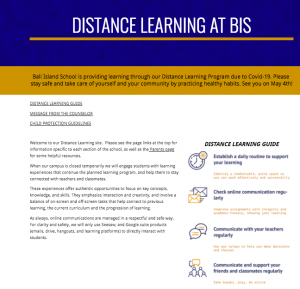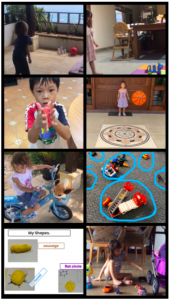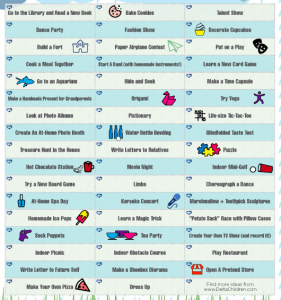Primary eNews – April 24, 2020
Thank you to our parents and students for their continued support of our Distance Learning Programme. I am extremely fortunate in that that I get to see the activities on SeeSaw and lessons being taught on Zoom for all of our classes. The teachers and students are engaged in teaching and learning with a lot of great quality learning taking place. I am very pleased to see that the well being of our students is being taken into account and that lots of activities that don’t involve being in front of screens are planned. I would remind all parents to spend some time each morning helping your child to get organized for their day’s landing and to direct any questions or concerns to your child’s teacher.
Please take a look at the Bali Island school Distance Learning website which can be accessed by going to the Quick Links on our school website or by clicking here.
Preschool Inquiry
This term the Preschool children have taken on the role of inquirers, exploring how “Forces around us affect movement and how things work”.
The children have been inquiring and have found out that;
- They have toys that need force to make them move.
- They could sort objects by how they move.
- Forces can be applied to objects to make them move.
- Pull and push are forces that can change direction.
- That surfaces have an effect on the type of force needed to make an object move.
- We can change the shape of an object by applying forces in different directions.
Grade 4 Indonesian Studies
Students in grade 4 Indonesian studies have been looking at the design of the Indonesian traditional houses in terms of colour, shape, the material used, and the influence of its culture on the architecture. Students did internet research about one of the Indonesian traditional houses. They put their findings on a slide show presentation. Here is a sample of their work.
Foster Your Child’s Mother Tongue
Whether you wanted it or not, you are now your child’s teacher at home! For many of us, this is very challenging, mainly because you went into parenthood to be a mom or a dad- you did not sign up to be your child’s teacher! Additionally, for those of you for whom English is not your first language, nor do you speak it confidently, you have to support your child’s learning… in English!
I know these weeks have not been easy. Give yourself a break and a pat on the back for trying your best! Your children are engaged and participating in their class activities, and turning in work that is done well. Continue to provide your teachers with feedback about what is working and what is not working, so we can try to find ways to support you better and improve our practice.
So here we are, stuck at home in the middle of a pandemic, and I think we actually find ourselves in a unique situation that allows us to strengthen both mother tongue as well as the English language. As you work with your child you are constantly speaking bilingually with your child, explaining unfamiliar words in your native language to deepen understanding, making connections to your own learning experiences, and even asking questions as you take an interest in your child’s learning. Better yet- your child is explaining to YOU what the English word means in your native tongue in order to support YOUR understanding! Either way, there is a constant building of vocabulary and conversation in both languages. The perfect situation for building and strengthening both languages.
A question you might be asking:
I usually speak to my child in my mother tongue, should I be focusing on speaking English now?
The answer is no. Continue to speak to your child in your mother tongue. This is important for a number of reasons:
- Mother Tongue preserves your family’s heritage and culture and helps your child develop confidence in his/her identity and fosters a sense of belonging.
- A strong mother tongue is a spring-board for learning a second language and developing fluency in both the native language and language of instruction.
- Bilingual speakers have a greater propensity for learning additional languages, and multilingualism is certainly a resource in our internationally connected world.
Support your child as best you can with his/her English work. Whatever you don’t understand or can’t help with, please email your child’s teacher so that they can provide you and your child with the additional support you might need.
Jackie Wyncoll
Primary EAL Teacher
Home Activity Ideas
Ibu Jackie, our Student Support Teacher has shared an interesting resource with lots of ideas for fun activities that families can do together as we’re all pretty much house-bound. Click on the image to see a full-size version of the poster.




